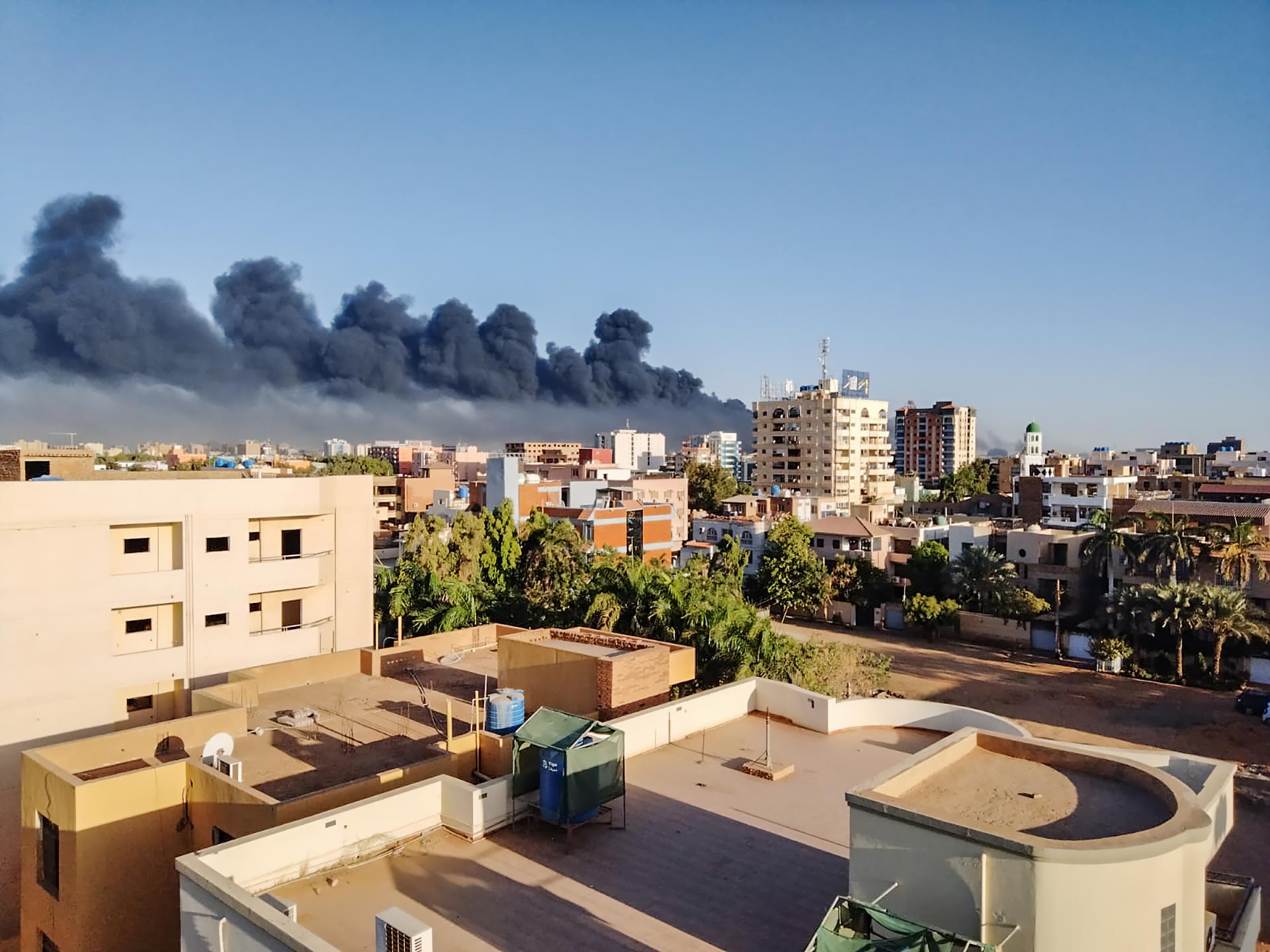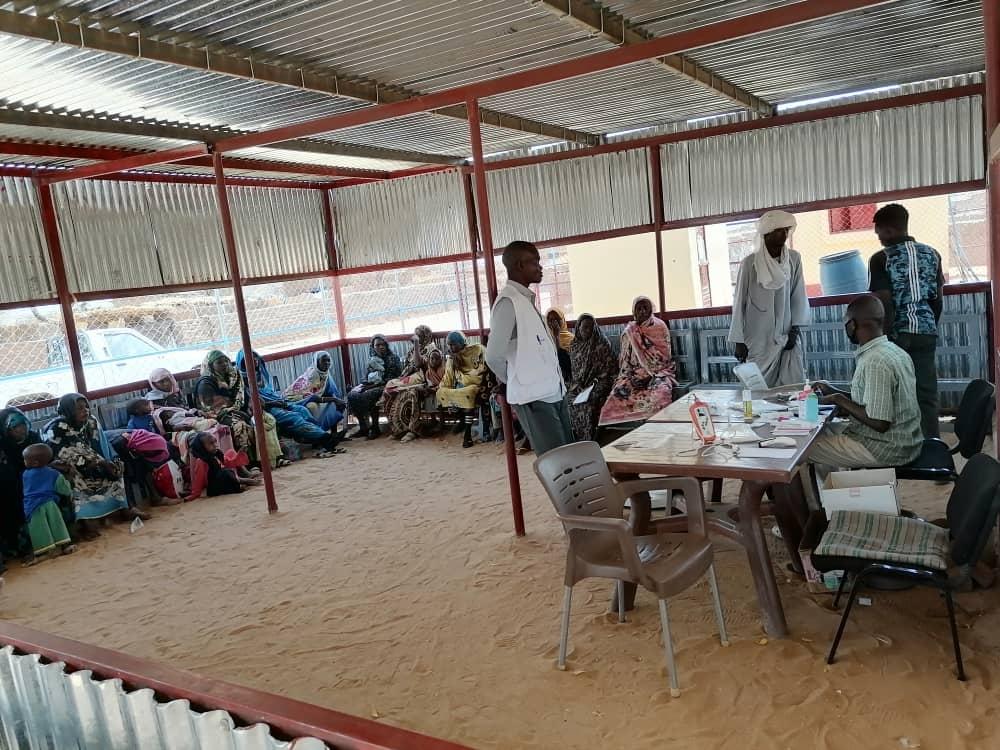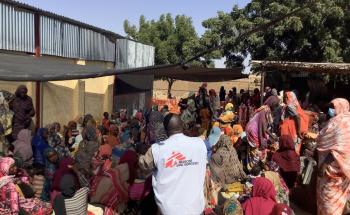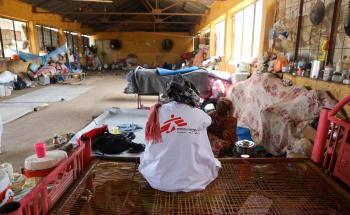Last weekend, MSF teams treated over 100 people wounded in two separate locations in Khartoum following deadly attacks. At least 49 people were killed in the strikes. This was the deadliest weekend witnessed by MSF teams in Khartoum since the beginning of the conflict five months ago.
Following an explosion in a busy Gorro market early Sunday morning, 43 people were killed, and over 60 wounded were treated in the MSF-supported Bashair Teaching Hospital, South Khartoum.
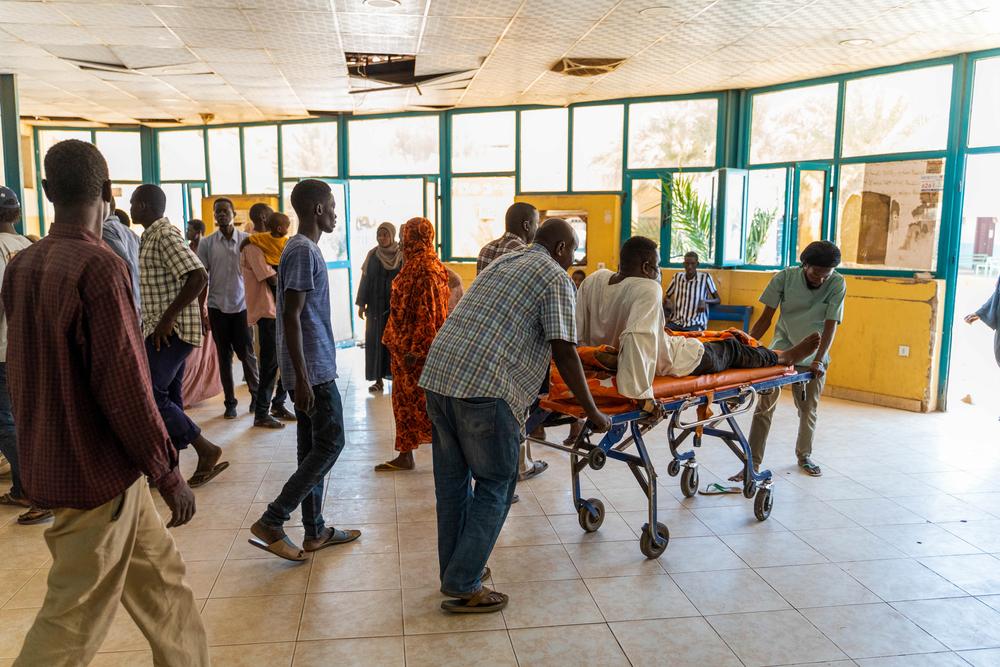
“The horror of the day was overwhelming. For hours, dozens of bodies lay under sheets in the hospital’s courtyard until their families came to identify their lost loved ones. And in the meantime, our staff tried their best to save the lives of the survivors, whose wounds were testament to the incredible power of the weaponry used: body parts torn off, abdomens ripped open. Even though this war has been going on for nearly five months, the Sudanese volunteers on whom the hospital relies on are still shocked by what they witnessed”, says Marie Burton, MSF emergency coordinator in Khartoum.
The previous day in the afternoon, the residential area of Al Haj Youssef in Khartoum was also struck, damaging houses and injuring dozens of people. The MSF-supported hospital, Alban Al-Jadeed, received 45 casualties, and six people were already dead upon arrival.
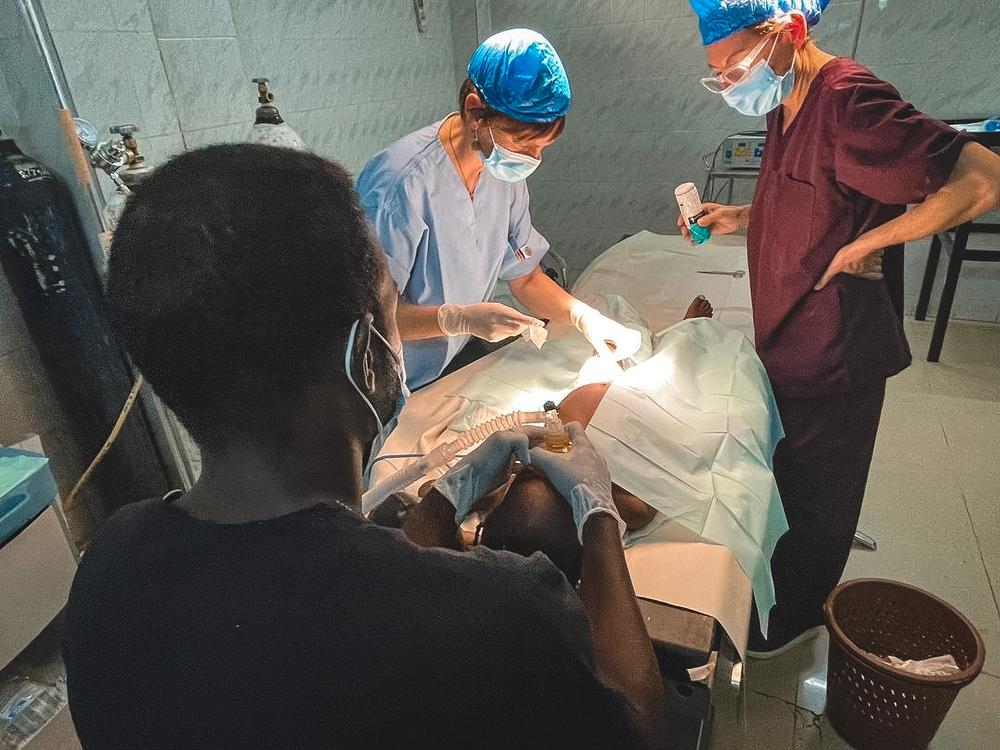
“The hospital is very close to the site of the attack. Our teams heard a loud explosion, so they rushed to prepare for the emergency. Soon after that, patients started arriving in groups,” says Christian Mas Bouilloud, the MSF medical coordinator in Khartoum. “Most patients had shrapnel wounds, many of them were critical. "It's horrific that residential areas, such as homes and markets, are being hit.”
These figures only account for patients directly treated by MSF teams. Other organisations reported casualties in the sprawling capital, home to 4 million people before the conflict.
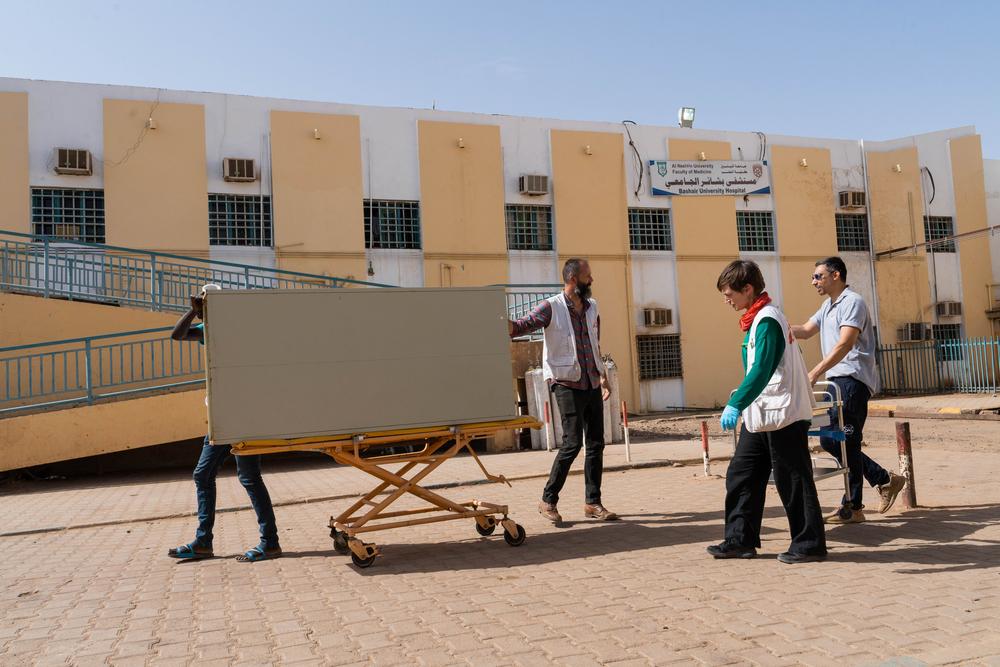
It wasn’t only Khartoum which saw the tragic impact of the conflict on the population over the weekend. In El Fasher, the capital of North Darfur, MSF teams working alongside the Ministry of Health in South Hospital responded to a massive influx of patients on Saturday, 9 September, after heavy fighting between the warring parties in the city. 48 patients received treatment, mostly for injuries caused by explosions and bullets. Four patients lost their lives.
Responding to mass casualty incidents after extreme violence is becoming a regular occurrence for MSF teams. The weekend before, on 2 September, following another strike on another market in south Khartoum, the MSF-supported Turkish Hospital received 21 dead and six severely injured people who were treated in the emergency room. On 3 September, medical teams in Omdurman treated more than 50 violence-related injuries following renewed fighting in Umbada. Eight patients died from injuries from bullets or explosions.
